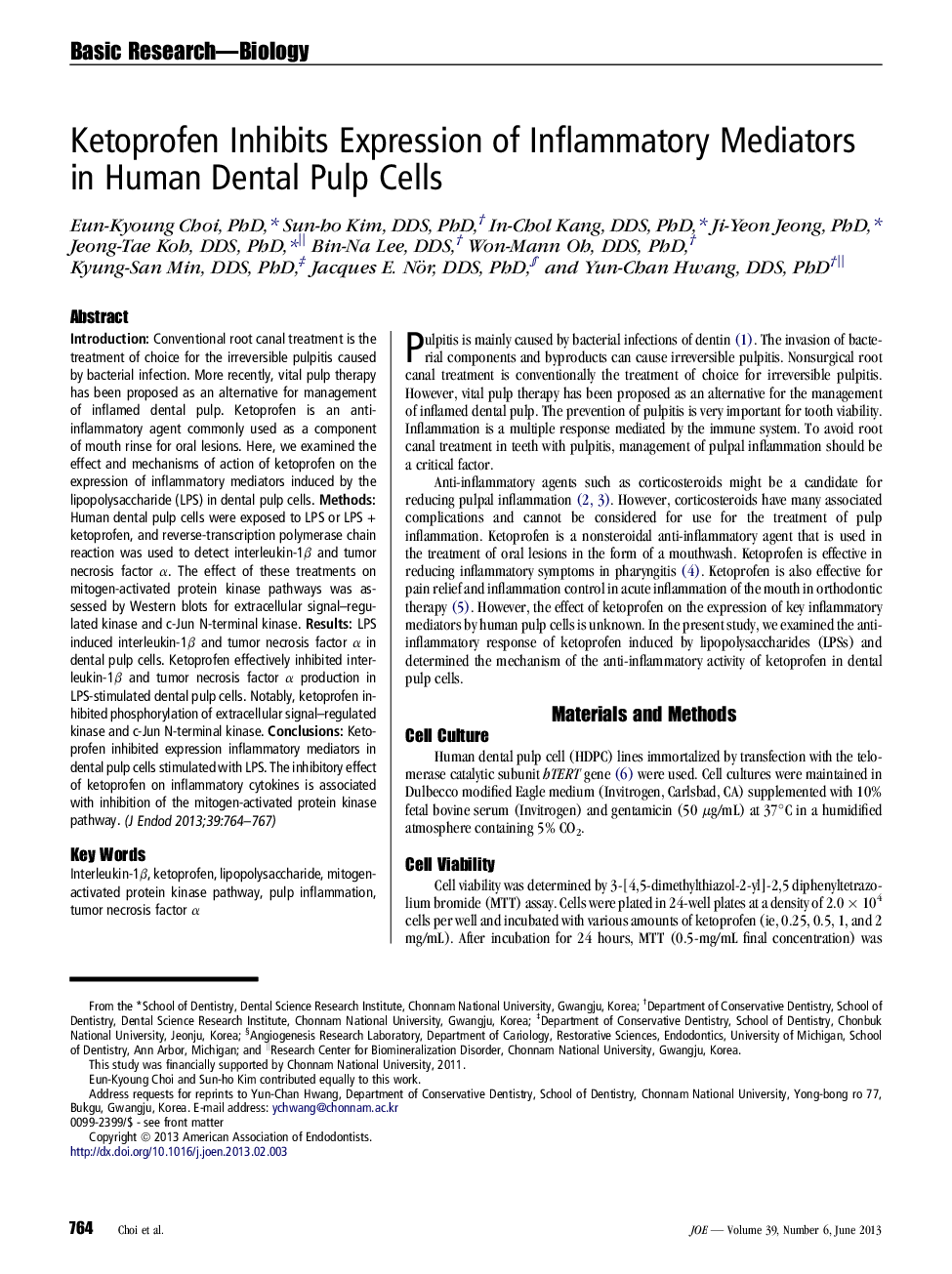| Article ID | Journal | Published Year | Pages | File Type |
|---|---|---|---|---|
| 3148764 | Journal of Endodontics | 2013 | 4 Pages |
IntroductionConventional root canal treatment is the treatment of choice for the irreversible pulpitis caused by bacterial infection. More recently, vital pulp therapy has been proposed as an alternative for management of inflamed dental pulp. Ketoprofen is an anti-inflammatory agent commonly used as a component of mouth rinse for oral lesions. Here, we examined the effect and mechanisms of action of ketoprofen on the expression of inflammatory mediators induced by the lipopolysaccharide (LPS) in dental pulp cells.MethodsHuman dental pulp cells were exposed to LPS or LPS + ketoprofen, and reverse-transcription polymerase chain reaction was used to detect interleukin-1β and tumor necrosis factor α. The effect of these treatments on mitogen-activated protein kinase pathways was assessed by Western blots for extracellular signal–regulated kinase and c-Jun N-terminal kinase.ResultsLPS induced interleukin-1β and tumor necrosis factor α in dental pulp cells. Ketoprofen effectively inhibited interleukin-1β and tumor necrosis factor α production in LPS-stimulated dental pulp cells. Notably, ketoprofen inhibited phosphorylation of extracellular signal–regulated kinase and c-Jun N-terminal kinase.ConclusionsKetoprofen inhibited expression inflammatory mediators in dental pulp cells stimulated with LPS. The inhibitory effect of ketoprofen on inflammatory cytokines is associated with inhibition of the mitogen-activated protein kinase pathway.
